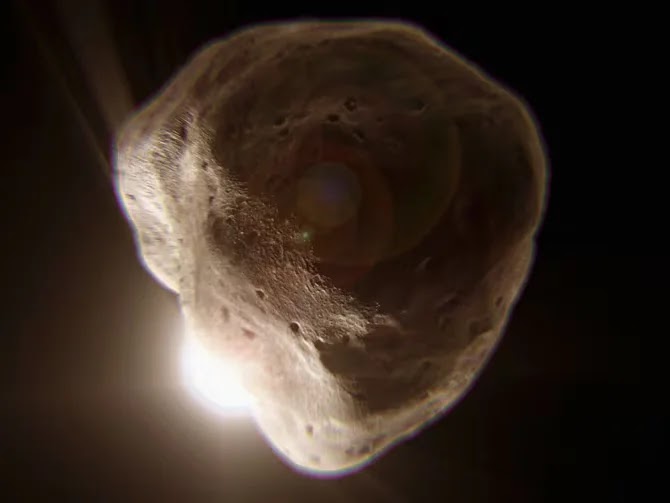Where does all the
ocean water come from? Scientists have two answers to this question.
The origin of water on Earth has been an enigma that scientists have long tried to solve. Do we really know what this hydration process of our planet was like?
The Earth and water in its beginnings
When Earth formed about 4.6 billion years ago, it was too hot to support liquid water on its surface. In those early days, the Solar System was a chaotic and violent place, with thousands of objects crashing into each other as planets formed. Probably, at that early stage, the Earth's mantle, the region between the core and the surface, would contain some moisture. But this moisture disappeared about 4.4 billion years ago , when Earth and a proto-planet called Thea, the size of Mars, collided, causing the formation of the Moon and drastically drying out our planet.
The recovery of the Earth
As time passed, the
Earth recovered from that violent event. The Solar System calmed down and
impacts became less frequent. At this stage, plate tectonics began and volcanic
activity generated gases that, together with some minor comet impacts, favored
the formation of small seas on the surface. But it was approximately 3.9
billion years ago when a change in the orbits of Uranus and Neptune triggered
what is known as the " late bombardment ," a period of great
gravitational instability that profoundly affected comets and asteroids, redistributing
them throughout the Solar System. . Millions of these celestial bodies collided
with the inner planets, producing the oceans we know on Earth today.
The proportion of deuterium, a new enigma
However, when the ratio
of deuterium (a heavier isotope of hydrogen) to hydrogen in the water of comets
is measured, it does not match the ratio present in Earth's oceans. In fact,
the proportion in comets is double or even greater than that found in the seas
of our planet . This creates great confusion and leads us to ask again: where
then does the water in Earth's oceans come from? Perhaps it was not comets that
brought it, but other celestial bodies during that late violent bombardment?
The “comets” of the Main Belt
Until recently, it was believed that only comets had ice that volatilized as they approached the Sun, displaying those impressive dust tails. But one day, surprisingly, an asteroid (which by definition has no ice) showed a tail. It was thought that it could be due to a chance impact with another asteroid, but when it passed its closest point to the Sun again, it was activated again.
This could not be a coincidence, so impacts were ruled out as the cause. After analyzing several hypotheses, it was concluded that sublimation (direct passage from the solid to the gaseous state) of water ice was the most likely explanation. It was a hybrid between a comet and an asteroid, a unique object. Shortly after, more similar objects were identified in the Main Asteroid Belt, a stable region between Mars and Jupiter. These have been called “ Main Belt Comets ”. Unfortunately, they are very faint, activating unpredictably and for a short time, making it difficult to measure their deuterium ratio to determine if they could be responsible for bringing water to Earth.






.jpg)
0 Comments